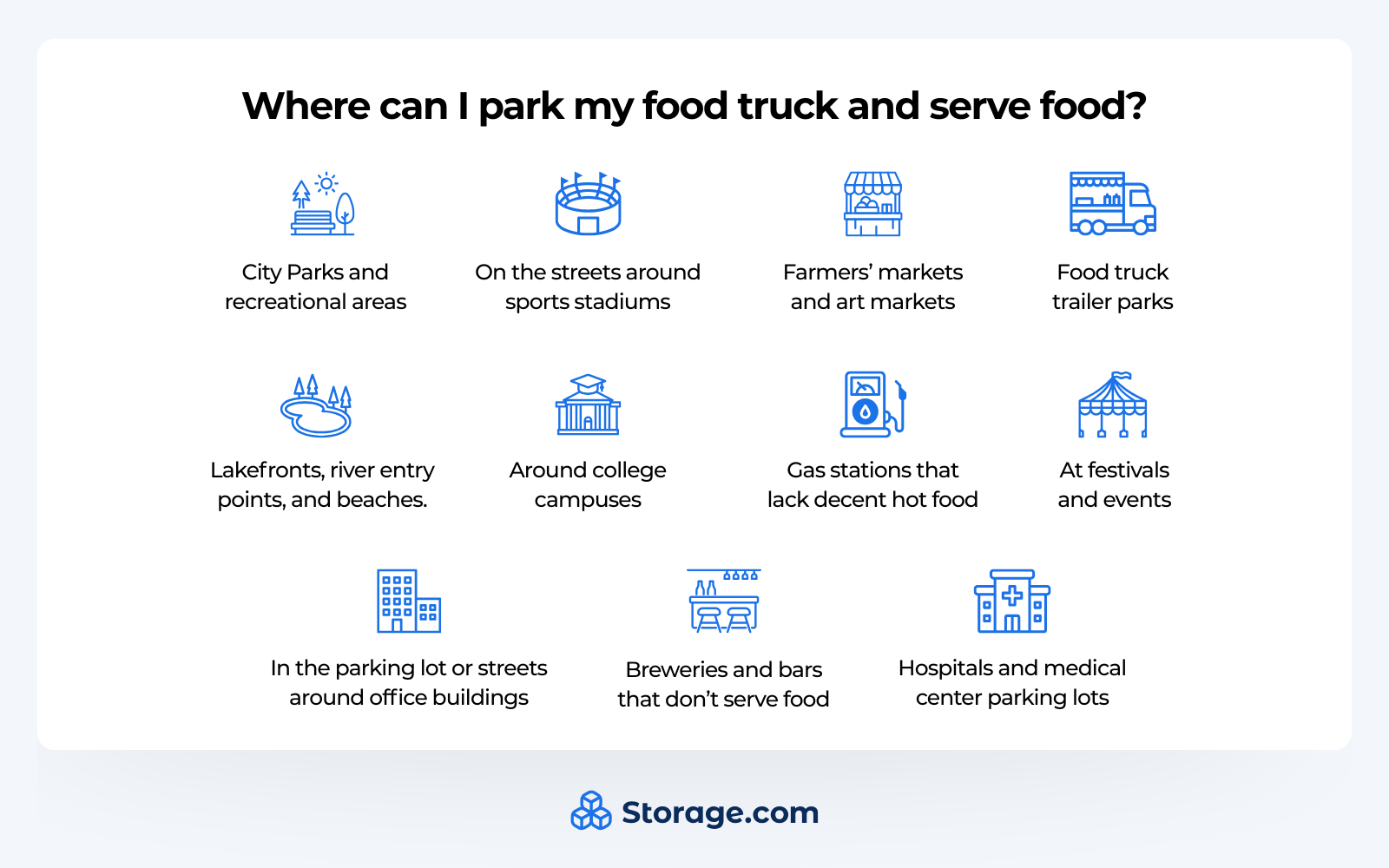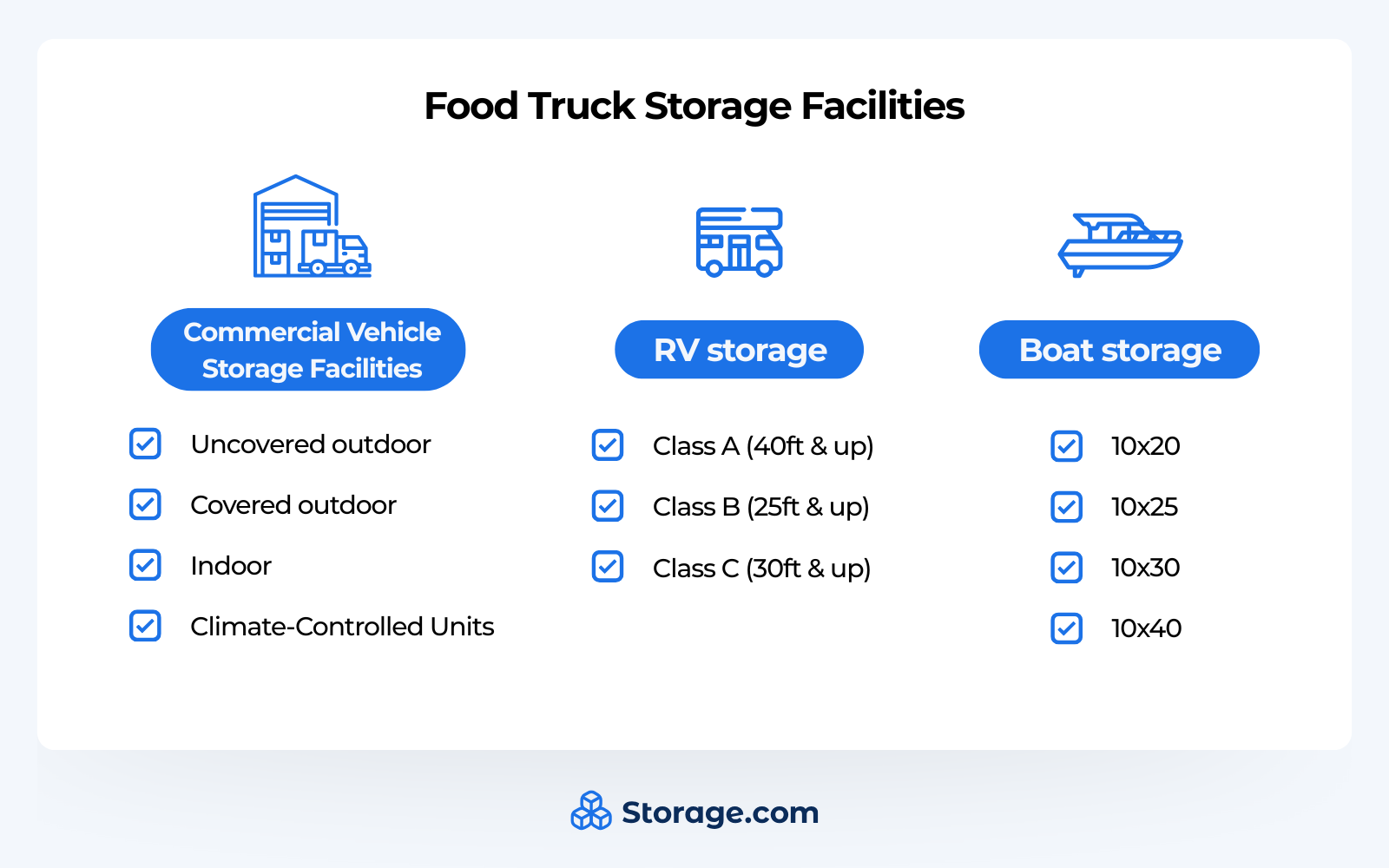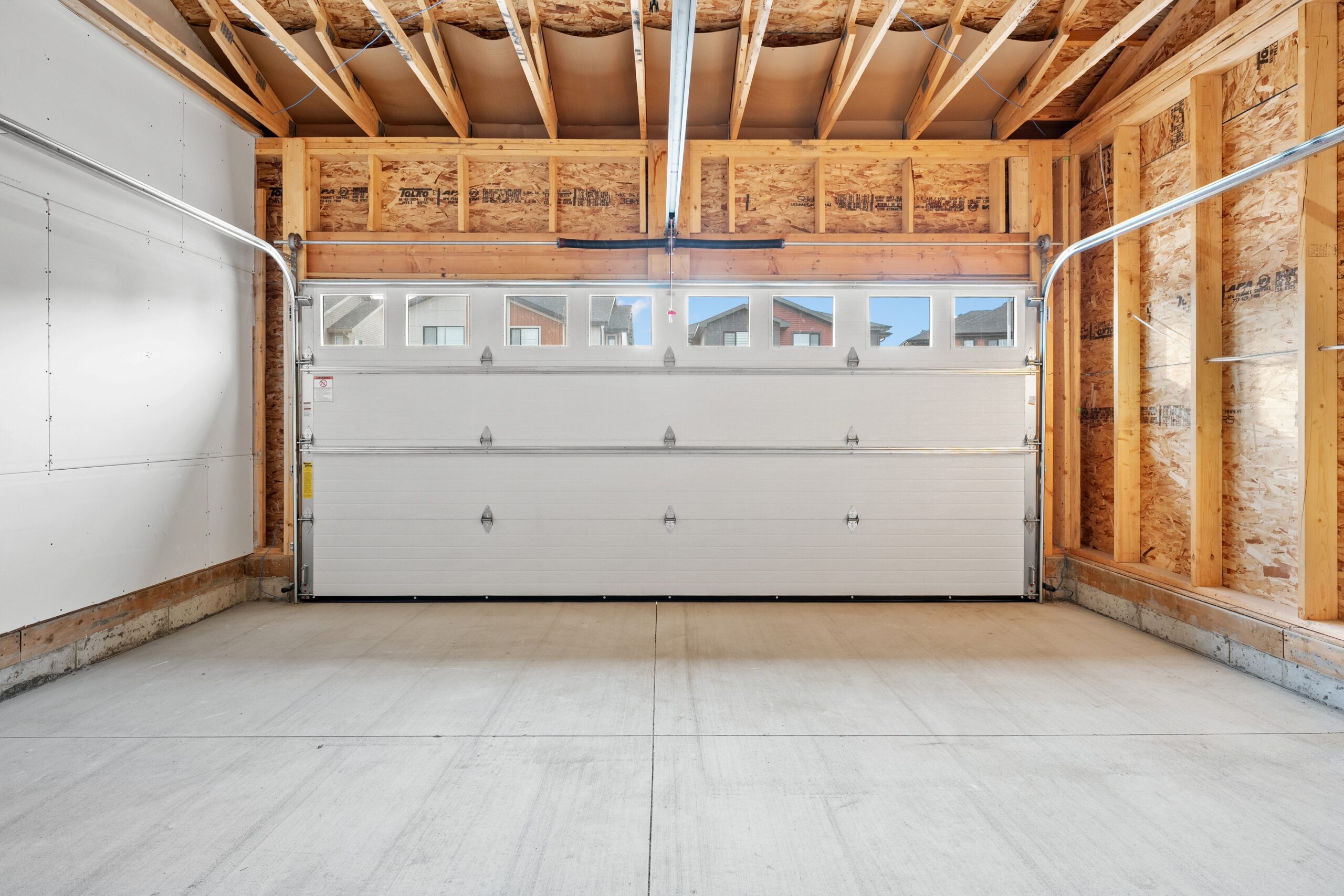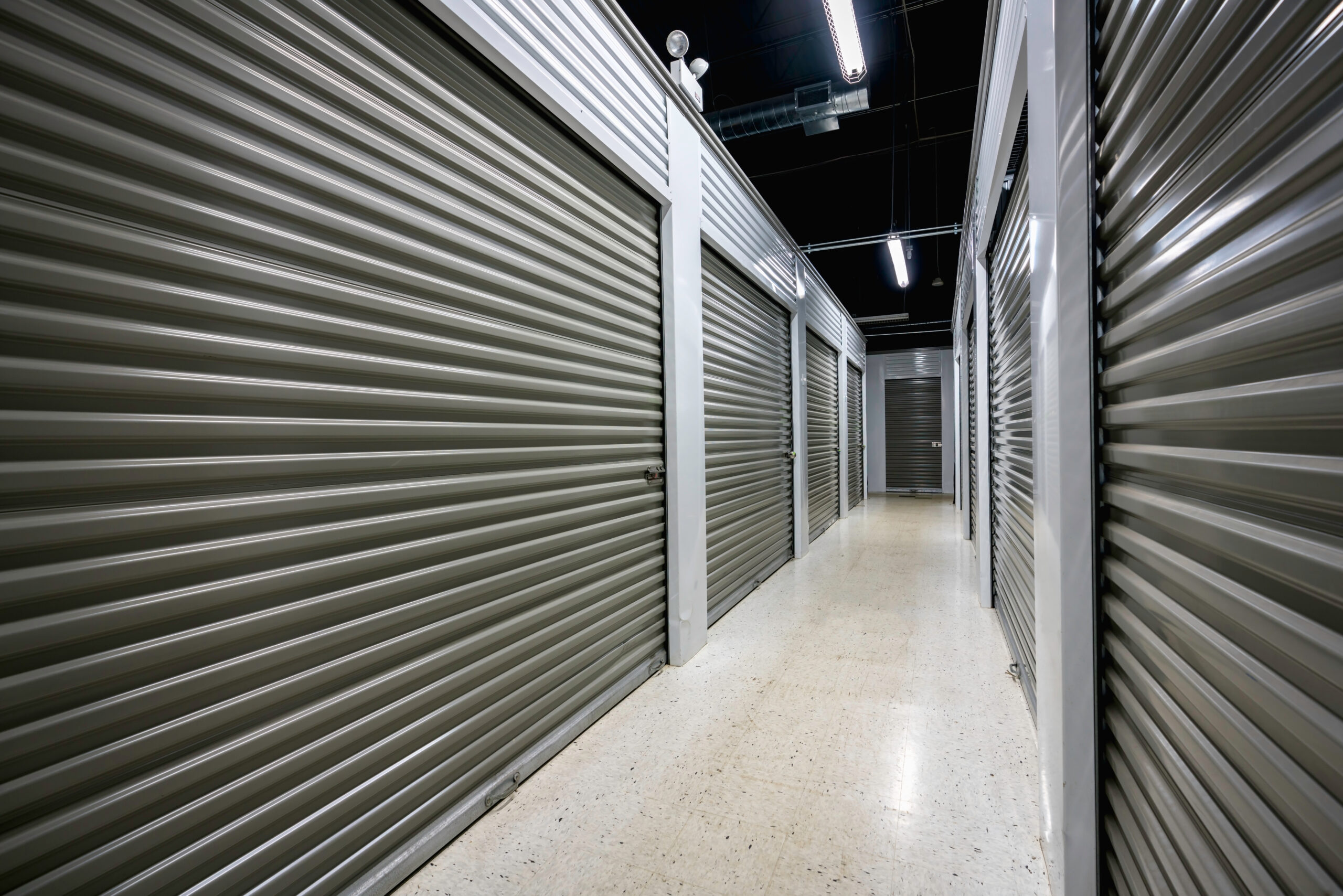Article takeaways
- Food truck storage facilities like RV and boat storage yards offer the best combination of security, climate control, waste services, and amenities.
- Commercial vehicle storage costs range from $30-$450+ monthly, depending on indoor/outdoor options, size requirements, and features like electricity, water access, and climate control.
- The legal food truck parking regulations vary by city and state, with many residential areas prohibiting food truck parking due to HOA regulations and zoning laws.
- Proper food truck storage preparation involves thorough cleaning both inside and outside, removing valuable equipment, preparing fuel systems, and covering windows to maintain your truck’s condition and ensure its legal status for quick service resumption.
- Commercial vehicle storage facilities can tell you whether or not you’re legally allowed to use their facility for food truck storage.
It’s no wonder that there are thousands of food trucks functioning across the United States.
With modern culture becoming increasingly mobile, the thriving food truck industry offers a diverse range of breakfast, lunch, dinner, and late-night food options as we move from place to place.
But a true food truck is a microcosm of a restaurant, a completely integrated mobile business. When it comes time to ask yourself, “Where should I park my food truck for the off-season?” the first thing that probably pops into mind is security.
And then there’s permits, laws, maintenance, and parking regulations to worry about. You can’t just park a mini restaurant on wheels in the general public like it’s a standard vehicle.
Once again, our Storage.com storage experts have done the research you don’t have to. First, we’ll compare different food truck storage facilities and options.
We’ll examine what to look for in a food truck storage facility. You want a place to keep your truck and its contents protected and secure, while ensuring you can perform the necessary maintenance and prep work to get back up and running as soon as your season begins.
Then, we’ll review cost considerations and legal requirements of food truck parking. Finally, we’ll reveal how Storage.com’s storage search tool can help you find a food truck storage facility in your area that has all the features you need.
Why Food Truck Parking Matters
You’ll want to choose a food truck storage facility with the amenities that keep your truck legal and ready for service when it’s time to roll back out. Knowing why food truck parking matters during the off-season or overnight/between services starts with understanding the requirements for service.
Where Can I Park My Food Truck?
The best place to park your food truck is a vehicle storage facility with enhanced security features. Vehicle storage facilities offer outdoor parking for affordability and easy access, indoor parking for added protection against the elements, and climate-controlled storage for maintaining optimal humidity and temperature control.
Where you park your truck matters, and the specific amenities you need depend on the situation. Let’s take a look at the various food truck parking situations that food truck owners seeking storage may find themselves in.
Food truck parking where I can park my food truck and serve food

Before we get into the details of off-season food truck storage, let’s take a quick look at where to park your food truck for service. After all, it’s maintaining your food truck’s legal status, cleanliness, assets, and functionality that makes proper storage so important.
There are obvious business considerations, such as identifying high-traffic areas populated by your ideal demographic and establishing relationships with businesses that could benefit from your food truck’s services. The permits needed vary from city to city, but in some cases, the permit you’ll need depends on where you aim to park your truck.
Here’s a quick list of places to reach out to, just in case you’re wondering where to park your food truck during food service:
- City Parks and recreational areas
- Lakefronts, river entry points, and beaches.
- On the streets surrounding sports stadiums
- In the parking lot or streets around densely populated commercial office buildings
- Around college campuses
- At festivals and events
- Farmers’ markets and art markets
- Gas stations that lack decent hot food
- Hospitals and medical center parking lots
- Breweries and bars that don’t serve food
- Food truck trailer parks
The municipal authorities at your city clerk’s office can tell you if the permits vary based on where you’re parking. For example, a state park might require different licensing than a bar or hospital parking lot. Talk to the location administration for opportunities, regulations, and ideas.
Food truck parking that considers seasonal business concerns
Off-season weather protection depends on the type of food truck you’re storing. If the truck is susceptible to damage from precipitation or UV rays, you may need covered storage. But if the temperatures reach extreme cold or hot in your region and your truck isn’t protected, you may need heated or cold indoor vehicle storage.
You may also need climate-controlled indoor storage if your truck is vulnerable to damage caused by wind, dust, or moisture.
Food truck parking that avoids legal and safety issues
Your city or town may have unique legal requirements and parking regulations for food trucks, even when they’re unattended and left sitting.
For example, the parking regulations for a smoker trailer may be different than the regulations for a trailer with a cold line and a POS system. You’ll want to confirm the zone restrictions permit the specific type of food truck you’re attempting to store.
And when it comes to a mobile business, security is another prime consideration for overnight or off-season parking, unless you store it somewhere with onsite security systems. If not, we suggest removing valuable equipment and assets. Stash your cash and POS system, and store your catering supplies.
You’ll want to make sure your food truck insurance will cover theft and vandalism. If not, we suggest adding additional coverage, especially if your food truck parking spot isn’t in a vehicle storage facility with insurance and extra safety measures.
Food truck parking that allows routine maintenance
Another reason finding an appropriate food truck parking spot matters is maintenance. You need a place that gives you the space and allowances required to perform maintenance on your truck during the off-season and overnight parking spaces, not just to keep your food truck up to code, but also to prolong its longevity.
When leaving your food truck sitting, you’ll need to deep clean the inside as you would a restaurant kitchen if you were letting it sit for a full season. That includes prepping the oven for storage.
You also need to prep the outside of the truck for storage. Clean and cover the windows with reflectors to keep the inside cool. Lock all your doors and windows, and remove any detachable signs and awnings from the outside of your truck so they don’t get stolen or damaged in harsh weather. If there’s room inside the truck, lock these detachables inside.
Food truck parking for long-term storage
For long-term storage and food truck parking, you need to pay extra attention to the condition you leave your truck in. Follow all the recommendations when prepping a vehicle for long-term storage, like prepping the fuel tank and fluids to avoid potential hazards. This also means ensuring there’s no trace of perishable items or food on the truck that can rot, cause mold, or attract pests.
Besides, leaving your food trailer like new during stints of long-term storage means you can come back ready to rock your first service when the season picks back up again. And it ensures you’re meeting the legal parking regulations, and that you won’t have to burst into a cleaning rush to pass an inspection or renew your permits.
Food Truck Storage Facilities and Food Truck Parking Options

Your food truck is probably among the most valuable assets that you own – you don’t want to store it just anywhere. And leaving it in the commercial lot you serve when it’s not in use isn’t always an option, nor does it guarantee your truck is protected when or even supervised in your absence.
Whether you’re seeking food truck storage overnight or on your days off, during the off-seasons, or while you go out of town or take a vacation, you want to park it somewhere where it’s safe from damage, theft, and weather.
Let’s take a look at your food truck storage facility options, starting with commercial vehicle storage facilities.
Commercial Vehicle Storage Facilities
Commercial vehicle storage facilities are specialized storage facilities that offer vehicle storage. They provide safe vehicle storage at competitive rates for both personal and commercial vehicles, ranging from company cars, trucks, and vans to food truck storage.
Commercial vehicle storage is a great option for small business owners, especially if the storage unit is permitted for business use. In fact, some business and commercial storage units actually let small businesses run aspects of their operation straight from their self-storage unit!
Food truck owners who use self-storage can save big per square foot, especially compared to the cost of commercial real estate. Plus, modern storage facilities include amenities that small business owners value, including convenient access and the ability to submit payments electronically.
Commercial vehicle storage facilities offer different types of parking opportunities, each with its pros and cons, that food truck owners can take advantage of. Let’s take a look at the various options.
Types of food truck parking options at commercial vehicle storage facilities:
- Uncovered Outdoor Food Truck Storage: An outdoor uncovered unit is a parking space similar to a traditional parking lot. An outdoor storage lot may be paved or gravel. An uncovered outdoor parking spot is the most affordable option. That said, it also provides your food truck with the least amount of protection, not recommended for long-term storage in locations that have extreme or unpredictable weather conditions.
- Covered Outdoor Food Truck Storage: Covered outdoor storage is the middle path option. Your vehicle is still parked in an outdoor lot, but it’s parked under a carport or similar structure. Covered outdoor storage offers more protection from weather elements than uncovered storage does, while still being more cost-effective than indoor food truck storage.
- Indoor Food Truck Storage: Indoor vehicle storage is typically the most expensive option. That said, it’s the ideal solution for a safe, secure temporary home for your mobile business. Indoor storage is fully enclosed, like a garage, so it offers the most protection, and if you get a large unit size, you can fit shelves of tools.
- Climate-Controlled Units: Climate-controlled units are indoor units that employ humidity and temperature control systems to maintain consistent temperature and humidity levels, ensuring that your items are safe from environmental damage like mold and mildew growth, warping, or rusting.
Food Truck Parking in RV and Boat Storage Yards
Another great option for food truck storage is to search for a storage facility in your area that provides explicit boat or RV storage. The storage space and amenities provided by a facility specializing in RV or boat storage translate naturally to food truck storage. Let’s take a closer look at each.
RV STORAGE FOR FOOD TRUCK PARKING
RV campers take up a lot of space, just like food trucks. That’s why self-storage facilities nationwide offer RV parking that frees up room in the owners’ yard or driveway while also providing a secure storage space with easy access and room for maintenance.
Small-sized food trucks and RVs can fit in a 10×30 or 10×40 storage unit, but storage units specializing in RV parking offer units that are 40-feet long and up in order to accommodate vehicles of all classes. The lot space or storage unit size you’ll need for food truck parking depends on the size of your food truck. Let’s take a look at the standard vehicle storage sizes based on the RV class and sizes:
- Class A Motorhome (40 feet and up): If your food truck is as big as a Class A motorhome, you’ll need a fairly large parking spot or storage unit. While Class A parking spaces can be indoor and outdoor, you’ll need a special RV storage facility to store a Food Truck 40 feet or over indoors.
- Class B Motorhome (25 feet and up): If your food truck is 25 feet long, you can squeeze it into a parking space designed for Class B motorhomes. A Class B motorhome can be up to 17 or 19 feet long, so you’ll need at least that much space for storage.
- Class C Motorhome (30 feet and up): If your food truck is larger than 25 feet but smaller than 40 feet, track down a Class C motorhome parking space. Class C RVs are fairly long, so a Class C space is at least 30 feet in length.
BOAT STORAGE FOR FOOD TRUCK PARKING
Boats can also vary in length. That said, unless the boat owner is storing their boat in a dock, they need to store their boat on a trailer. Boat storage lots and units large enough to fit a trailer are typically also big enough to fit your food truck.
Lucky for you, there are more than a few storage facilities out there aiming straight at this hole in the market, offering indoor storage units and outdoor parking options large enough to fit a trailer and boat.
You can use online resources such as our Storage.com boat storage search tool to find a boat storage facility near you for a secure and easy food truck storage solution.
The average cost of boat and RV storage will depend on the storage unit size needed for your food truck. Here’s a quick guide to average indoor unit sizes:
Note: the cost of a food truck storage facility unit may vary based on region and features.
Self-Storage Facilities with Vehicle Storage
There are also storage facilities designated for car storage and trailer storage. Depending on the size of your food truck, a car storage unit may or may not do the trick. These units vary by length, just like RV storage units, but most of them leave enough width for you to walk around the vehicle, conduct maintenance, and sometimes even fit a shelf full of tools.
Drive-up storage units are typically on the ground level, allowing you to pull right into the unit through garage-style doors. These are great options for food trailers that are towed behind a vehicle, as you can back up, drop the trailer, and take off.
Facilities with drive-up storage units often equip fenced or walled perimeters with coded gated access and 24-hour security cameras for extra protection.
Drive-up facilities aren’t always climate-controlled, however, as they’re often detached garag-style units. Again, whether or not you need climate control for your food truck storage depends on the truck, the climate you live in, and how long you’re storing it for.
Private Food Truck Storage Lots
Another option for food truck storage is to split a warehouse facility rental with other food truck owners. That said, renting a commercial warehouse has its pros and cons. Warehouse leases are often much more expensive than storage leases and require a long-term commitment.
Warehouses aren’t the best option for short-term food truck parking or overnight parking, due to the contractual nature and long-term commitment. Here are a few private parking ideas for short-term or overnight food truck parking:
- RV Parks/Campgrounds $30 – $70 per night
- Designated Food Truck Lots $10 – $50 per night
- Food Truck Parks $20 – $100 per night
What to Look for in Food Truck Storage Facilities

The first consideration when seeking out a food truck storage facility is the size and clearance requirements of your vehicle. Measure the height, width, and length, and find a vehicle storage space that gives you extra room to walk around the vehicle to conduct routine cleaning and maintenance.
If you find an indoor storage unit or garage with privacy, you may also want enough space to unload the contents of the truck for interior cleaning. You should also consider whether or not you wish to keep a shelfing unit full of extra catering supplies and vehicle maintenance tools.
RV storage facilities work great for food trucks, especially when they include a dump station or sanitation service on-site and water access for cleaning.
Another essential feature to consider for food truck storage is whether you want a storage unit with electricity. Electrical hookups allow you to charge your vehicle on a battery tender when it’s not in use, and run power tools and cleaning tools during equipment maintenance and upgrades.
Powered storage units typically provide electricity in two different ways:
- Standard outlets: If all your food truck needs is a straightforward electrical outlet to plug in a battery charger, fan, or one electrical tool at a time, you should look for facilities that offer standard outlets as an add-on.
- Power strips: Food truck owners who plan on doing heavy maintenance or need to hook up their truck and test its equipment may be better served by a unit with power strips. Storage units equipped with power strips allow users to plug in several devices simultaneously, and are often licensed for professional or private workshop use.
We also suggest a food storage facility with security features, such as electronic gate access, 24-hour cameras, motion sensor lighting, or even onsite managers or security personnel.
Finally, consider the frequency or ease of access you’ll need when it comes to checking on your food truck during storage. If you only need to check on it once a month, a facility on the edge of town may save you some money. But if you need to inspect and service your food truck often, find a storage unit in your zip code.
Cost Considerations and Budgeting for Food Truck Parking
The average pricing for vehicle storage and food truck parking varies depending on whether the storage space is indoor or outdoor, shared or private, and how big a space you need. For reference, the average monthly cost of storing an RV is around $130.
A lot of factors can influence your food truck storage cost. Variables such as location and amenities, such as electrical and water access, sewage dump stations, and sanitation services, call impact how much your monthly rate will be.
Another food truck storage cost consideration is the local supply and demand, and the time of year. If food trucks in your area are popular, or if you’re trying to book an RV storage unit during winter, when lots are full with winterized RVs, the prices may go up until spring.
The size and type of storage space you need for food truck parking will definitely affect the cost. The bigger your food trailer, the more space you need and the higher the price.Y
You can always save money by storing your food truck in an outdoor lot, but your mobile bread and butter will be at the mercy of the climate. Let’s take a quick look at the rate differences.
- Outdoor parking spaces (starting between $30-$50 a month up to $100+): Some vehicle storage facilities offer gravel lots at a more affordable price, while others have paved parking lots. If you are looking for cheap food truck storage, you can save money with a gravel lot. Parking in paved lots is better for your food truck’s underbody, but typically costs more.
- Enclosed RV storage (starting between $50-$125 a month and up to $450+): Indoor food truck storage provides more security and protection against harsh weather and seasonal elements. If you want your food truck to stay guarded against the winter weather, heated vehicle storage can cost anywhere from $100 to $450 a month.
Again, prices will increase with the size of your food truck, as well as the added amenities, such as climate control, electricity, and on-site security.
Some RV and food truck storage facilities offer premium services, such as valet parking, battery charging, sewage dumping, sanitation services, and more. All of these services will raise the rates, so you’ll have to decide if it’s worth the investment.
That said, beyond just the convenience of servicing your food truck during the off-season, all in one place, these extra services can prolong your food truck’s longevity, as you’re not having to add miles on it during the off-season.
Legal Requirements and Permits for Food Truck Storage

The local zoning laws for commercial vehicle storage vary from city to city and from state to state. One of the benefits of going through an RV or boat storage facility for off-season food truck parking is that the management team will be well-versed in the local laws and can tell you right away if they’re zoned for storing a commercial food truck.
You’ve also got HOA regulations to consider. In lots of cities, neighborhoods that are stacked with residential homes have neighborhood HOAs that discourage RV, trailer, and food truck parking in driveways for longer than a day or two.
The specific regulations vary depending on the neighborhood HOA policy, but in some cases, they even prevent you from parking a food truck in your backyard. So, can you park a food truck at your house?
Not unless you have a designated lot or warehouse garage designed to park large commercial vehicles. The commercial nature of food trucks makes storing them at your home or in a residential neighborhood complicated and often illegal.
In fact, residential food truck storage is against the law in the following US cities:
- New York, New York
- Los Angeles, California
- Columbus, Ohio
- Washington, D.C.
- Boston, Massachusetts
- Miami, Florida
- Chicago, Illinois
- San Francisco, California
- Seattle, Washington
When it comes to your business licenses and food truck permit requirements, you need to contact the city clerk’s office to find out exactly what you need.
Legalizing your truck for service often requires both a food truck permit and a vendor truck application. You can inquire into the local laws regarding overnight or off-season food truck storage when you hand in your application.
The last legal aspect to consider when plotting out your food truck storage is insurance. When it comes to standard vehicle insurance, car storage insurance, or “parked car insurance,” is included in your truck’s comprehensive coverage plan. Parked car insurance protects the car against theft and damage even when it’s not running.
In the two states that don’t offer parked car insurance, you can purchase vehicle storage/parked car insurance at a pretty affordable rate. That said, your food truck insurance may be insured through your business insurance and not your vehicle insurance provider. Find out who your provider is and contact them directly to inquire about whether or not your food truck is covered when in storage. If it’s not, find out how much it costs to ensure it’s covered.
Some vehicle storage facilities offer insurance as well, but there’s a limit to the damages it will cover.
Where Can I Park My Food Truck? Storage.com Can Help
By now, you should have a pretty good idea of where to park your food truck for storage. While there are plenty of options, the significant amount of space, water, electric, and septic services, and security and climate-controlled amenities provided by boat storage yards and RV storage facilities make them an ideal solution for food truck storage.
The specific choice of food truck service facility depends on the commercial zoning laws in your city, your budget and business goals, and the climate you live in. Financial considerations like insurance, contracts, and monthly storage fees also impact the optimal choice.
The benefits of vehicle storage facilities include climate control, security features, and a range of size options. Storage facilities are often zoned for business storage, and the contract and commitment options include short-term rental agreements or even month-to-month.
But not every storage facility is created equal. One may have the security features you want, but not a large enough storage unit to fit your food truck. Another may have the right size, but lack climate control.
So, how do you find a food truck storage facility that has everything you need? Storage.com is here to help.
Just punch your zip code into our handy Storage.com search tool, and we’ll help you browse and compare self-storage units. Our unique amenity filters isolate the storage facilities not only by unit size, but also by amenities, ensuring you get a food truck parking spot with all your non-negotiable storage features.
Let us help you assess your needs and explore your options, and together, we can find the ideal storage solution for your mobile business.





![The Ultimate RV Packing List & Checklist [Printable]](https://blog.storage.com/wp-content/uploads/2025/08/shutterstock_2490234073-e1756329334567.jpg)
